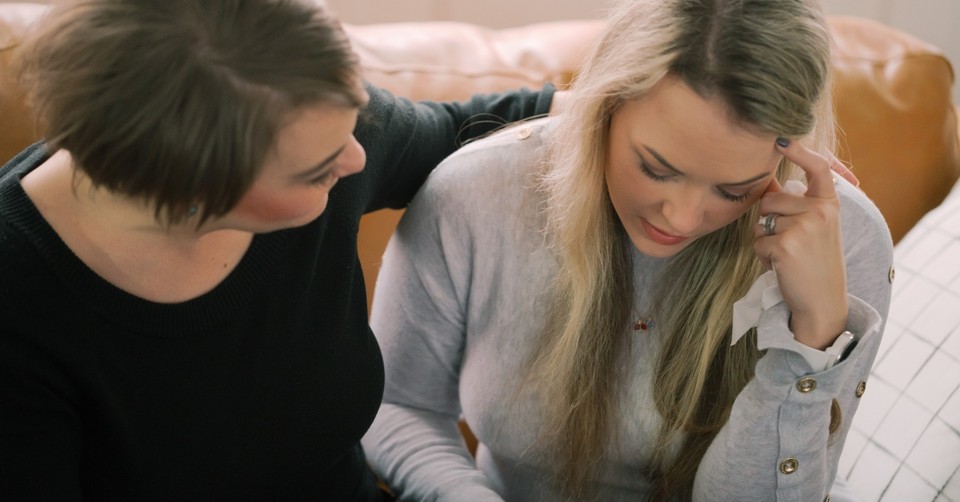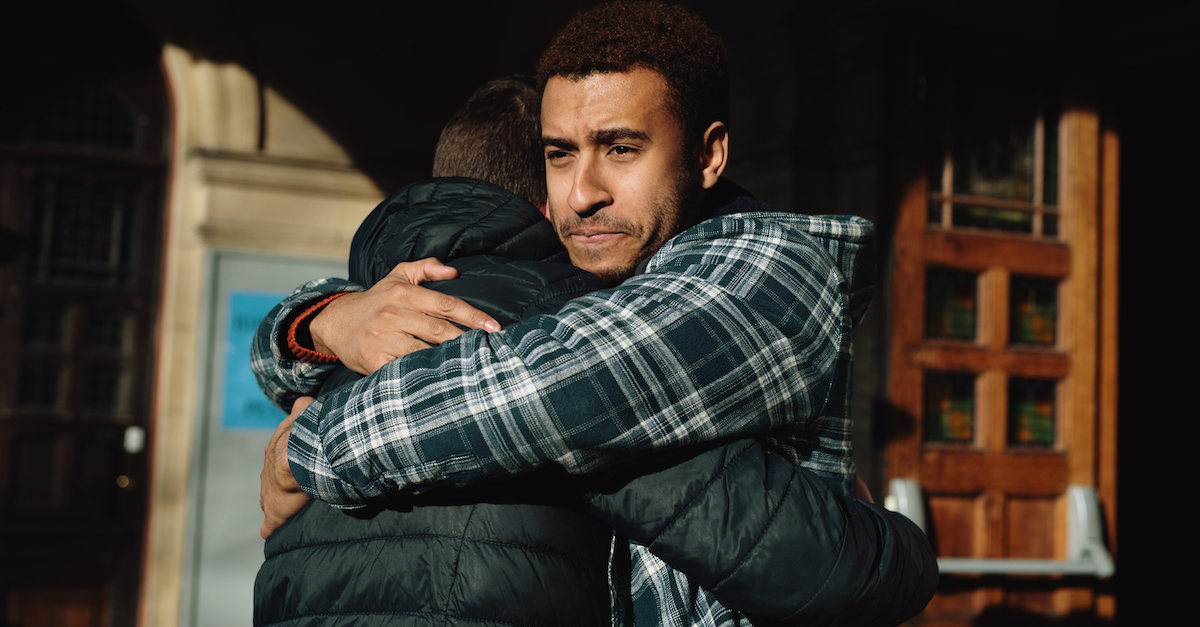Is This the Missing Ingredient in Your Relationships?

Vulnerable.
I want you to think about that word for a moment.
Vulnerable.
Did that word make you feel warm, fuzzy, connected, and known?
Or did that word make you feel scared, weak, and desperate?
Did it make you want to soften and open up, like a delicate flower? Or run away, slam the door, and put your heart behind a fortress where no one can hurt you again?
If you’re like most people, the more negative connotation of that word is what resonates with you. Vulnerability means weakness. Vulnerability means you can get hurt. Vulnerability ultimately means the fear of shame.
According to Brene Brown, shame is “the fear of disconnection. [It makes us ask] “Is there something about me that, if other people know it or see it, that I won't be worthy of connection?”
But it is the very opportunity for shame to happen that actually allows for connection to happen instead. Without the risk of shame through vulnerability, there would be no reward for connection.
Maybe you feel like you do a great job of “Serv[ing] one another in love” (Gal 5:13), “Offer[ing] hospitality to one another without grumbling,” (1 Peter 4:9), and “Submit[ing] to one another out of reverence for Christ,” (Eph 5:21).
You feel like you go out of your way to give to people. You sacrifice your time, money, and energy. But you just don’t feel connected to the people around you yet.
Maybe the missing ingredient in your one-another relationships is vulnerability!
Vulnerability in the Bible
There is no mention of the word “vulnerability” in the Bible. So how do we know that it’s important for relationships?
Well, there may be no mention of vulnerability, but when you look at scriptures of how we are to be in relationship with one another, the need for vulnerability becomes very clear.
For example:
James 5:16 “Therefore confess your sins to each other and pray for each other so that you may be healed.”
It is very vulnerable to confess your sins, but so important! And how are other people supposed to pray for us if we are not being vulnerable about what we need prayer for?
1 Thessalonians 5:11 “Therefore encourage one another and build each other up, just as in fact you are doing.”
How will the people around us know how to encourage you or build you up if they don’t know your weaknesses or what you feel discouraged about? This exchange definitely takes vulnerability.
Galatians 6:2 “Carry each other’s burdens, and in this way you will fulfill the law of Christ.”
Maybe you feel like you are carrying everyone else’s burdens, but no one is carrying yours. The question is, have you given them the opportunity to, through being vulnerable about what your burdens are?
As you can see, biblical relationships are very much a two-way street. And just as much as we need to be focused on serving others, it is actually biblical to give others opportunities to serve you!
C.S. Lewis writes: “Friendship ... is born at the moment when one man says to another "What! You too? I thought that no one but myself…”
Vulnerability is essential for this moment to happen. It allows you to see that you are not alone!

Photo Credit: ©GettyImages/Sarah Mason
Is Vulnerability Weakness?
Many of you may have grown up being told, either directly or indirectly, to hide your emotions, failures, and flaws because to be vulnerable is to be weak. You may have been told, “Don’t let anyone see you cry,” or “Don’t show them your weak spot, or they’ll take advantage of you.”
In our society, people who never break a sweat and are always on their A-game are seen as the strong ones. What is so amazing about vulnerability, though, is that it actually takes a ton of courage.
In her famous talk on vulnerability, Dr. Brene Brown says this about courage: “the original definition of courage, when it first came into the English language–it's from the Latin word "cor," meaning "heart"--and the original definition was to tell the story of who you are with your whole heart. And so these folks had, very simply, the courage to be imperfect.”
To tell the story of who you are with your whole heart. What a beautiful way to live. To live this authentically would be impossible without vulnerability. And when we are open about our imperfections, it opens up the possibility of shame–but it also opens up the possibility for true, deep love. It just takes courage!
Tim Keller has this to say about this dynamic: “To be loved but not known is comforting but superficial. To be known and not loved is our greatest fear. But to be fully known and truly loved is, well, a lot like being loved by God. It is what we need more than anything. It liberates us from pretense, humbles us out of our self-righteousness, and fortifies us for any difficulty life can throw at us.”
Vulnerability is the courageous decision to allow for the opportunity to be known and loved. The most powerful thing possible for our earthly relationships!
But how can we do this, knowing how scary it is?
How to Learn to Be More Vulnerable
To learn how to do a scary thing, you have to start from a place of safety. The fear of being shamed for your weaknesses, and therefore rejected, becomes a lot less scary when you know that God sees all of your weaknesses, but completely accepts you anyway!
Jesus dying on the cross for your sins, so that he could be with you forever, carves this acceptance in stone. There is no weakness hidden from God, and yet he says to us, “My grace is sufficient for you, for my power is made perfect in weakness” (2 Cor 12:9).
God’s love is unconditional and gives us the place of safety that we need to start opening up to others. Maybe they’ll love us for who we are, and maybe they won’t–but either way, we are going to be okay because we have the most important love of all, solidified for us 2,000 years ago.
When we know that we are worthy of love, even though we are imperfect, we start treating others this way, too. It allows us to open up to others, and also provides the safety that they need to open up to us, too! What a beautiful circle.
So start there. Start by learning who God says you are and do what you can to believe it with your whole heart. And then, start testing the waters!
You don’t have to start being vulnerable to everyone, all the time, right away. Vulnerability does not necessitate that you start babbling your deepest darkest secrets to your neighbor over the fence while they’re mowing the lawn. You can start small.
Pick one person you would like to build a closer relationship with, that you know to be a generally safe person. And then pick one vulnerable thing you know you need some encouragement with. Pray for God to give you an opportunity to bring it up, take the plunge, and see what happens!
You could even start a little log in a journal about times that you were vulnerable to safe people and what their reaction was. The more that you see your vulnerability being met with compassion, warmth, acceptance, and love, and the more you see it strengthening your bonds and making you feel closer to people, the more you’ll feel comfortable doing it!
You will be amazed at how your relationships transform when you go out of your way to care for others, and in turn, let them care for you, too. Be courageous enough to open up, little by little, to tell the story about who you are with your whole heart–and give someone else the gift of being able to say, “You too?! I thought I was the only one…”
Photo Credit: © Sparrowstock
The views expressed in this commentary do not necessarily reflect those of CrosswalkHeadlines.
Kelly-Jayne McGlynn is a former editor at Crosswalk.com. She sees the act of expression, whether through writing or art, as a way to co-create with God and experience him deeper. Check out her handmade earrings on Instagram and her website for more of her thoughts on connecting with God through creative endeavors.
Originally published May 31, 2023.




